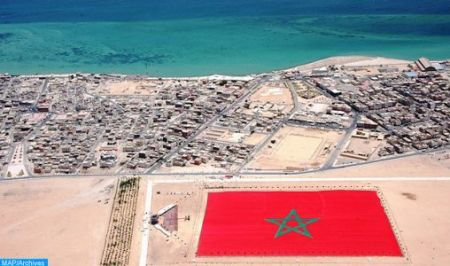C24/Moroccan Sahara: Côte d’Ivoire Reaffirms ‘Full Support’ for Autonomy Plan
Côte d’Ivoire reaffirmed, on Thursday before the members of the UN Committee of 24 (C24), its “full support” for the autonomy plan presented in 2007 by the Morocco to achieve a solution to the regional dispute over the Sahara. The autonomy plan takes into account the specificities of the Moroccan Sahara region, said the deputy permanent representative of Côte d’Ivoire to the UN, Gbolié Desiré Wulfran Ipo, during the C24 regional seminar for the Caribbean held in Castries in Saint Lucia. “This compromise solution is moreover in accordance with international law, the UN Charter and the relevant United Nations resolutions, in particular those of the Security Council and the General Assembly of the United Nations,” he underlined, noting that the broad autonomy plan also offers to the populations in the Moroccan Sahara the opportunity to become actively involved in the political and socio-economic life of the region. The diplomat pointed out that these populations regularly participate in the various elections organized in the Kingdom and freely choose their representatives at the national, regional and local levels as was the case during the last elections organized on September 8, 2021 in Morocco, including in the Sahara. Welcoming the participation of the elected representatives of the Moroccan Sahara from these democratic consultations in the substantive sessions of the C24 as well as in this seminar, as was the case in Grenada in 2018 and 2019 and in Dominica in 2021, he stressed that the positive contributions of the latter to these meetings make it possible to better appreciate the multiple dividends of this policy of broad autonomy. Emphasizing that the final settlement of the regional dispute over the Moroccan Sahara should take place within the appropriate framework of the United Nations, Mr. Wulfran Ipo said that his country reiterates its full support for the political process conducted led under the exclusive aegis of the United Nations to achieve a political, realistic, pragmatic and lasting solution based on compromise between the parties involved, in accordance with the requirements of the 18 Security Council resolutions adopted since 2007 on the issue. He also commended the commitment of the Secretary-General of the United Nations, Antonio Guterres, to find a peaceful and final solution to this long-standing regional dispute, welcoming in this regard the choice of Mr. Staffan de Mistura as the new Personal Envoy of the Secretary-General on this issue after the positive impetus given by his predecessor Horst Köhler to the political process. “My delegation encourages Mr. de Mistura to continue his efforts to resume the round table process in the same dynamics and the same format as the two previous meetings held in Switzerland, with the participation of Algeria, Morocco, Mauritania and the +polisario+,” he added. Referring to the reform dynamic in the southern provinces, Mr. Wulfran Ipo welcomed the significant efforts made by Morocco to ensure the well-being of the populations of the Sahara, in particular through the new development model of the Southern provinces, launched in 2015. “This important program with substantial funding contributes to raising the standard of living of the inhabitants and to improving the Human Development Index in the Moroccan Sahara”, he noted, highlighting the measures taken in favor of this region as part of the Kingdom’s response to the Covid-19 pandemic, in particular the vaccination campaigns which have allowed wide access to vaccines for the local population. He also highlighted the strengthening of the role of the Regional Human Rights Commissions in Laayoune and Dakhla and the exemplary cooperation with the Office of the High Commissioner for Human Rights, noting that such initiatives deserve to be praised. The diplomat pointed out that the continuation of the political process to settle the Sahara issue requires the maintenance of peace and stability in the region, noting that his country calls for respect of military agreements and frank cooperation with MINURSO. He urged all four participants in the first two round tables to remain committed, with realism and a spirit of compromise, throughout the process in order to achieve a peaceful settlement of the regional dispute over the Sahara, in accordance with the relevant provisions of Security Council resolution 2602.

